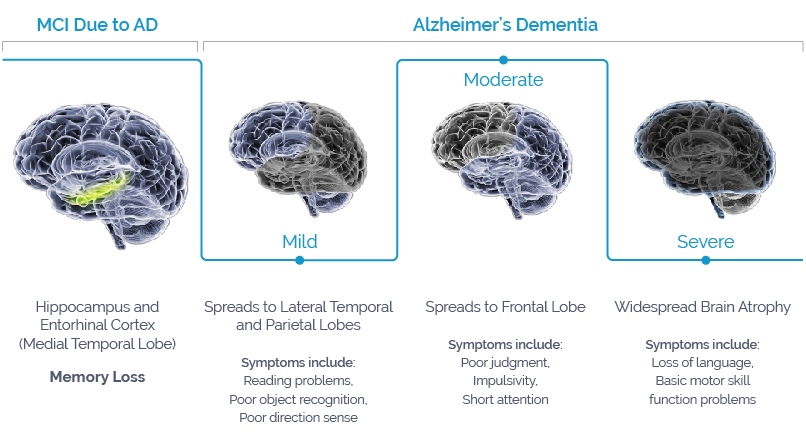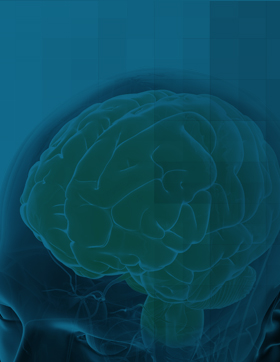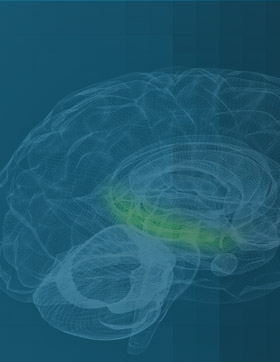
MCI due to AD, the symptomatic, pre-dementia phase of Alzheimer’s, results from hippocampal overactivity.
Nearly every minute, someone in America transitions from normal aging when they occasionally experience senior moments of memory loss to a stage at which their memory loss becomes an everyday part of their life.
This stage is called mild cognitive impairment due to Alzheimer’s disease (MCI due to AD), the symptomatic, pre-dementia stage of Alzheimer’s. There is no treatment for MCI due to AD. For most, MCI due to AD will progress over subsequent years to Alzheimer’s dementia.1

AGB101 was developed based on research showing that people with memory loss and increased risk for progressing to Alzheimer’s dementia have a condition of excess neuronal activity (hyperactivity) in a critical area of the brain responsible for creating new memories, the hippocampus.
Prevalence and Cost
Today 5.6 million Americans and 25 million people globally suffer from MCI due to AD, and this population will double by 2030. By age 85, one of every three people will have Alzheimer’s disease. Alzheimer’s disease currently costs Medicare and Medicaid $150 billion in direct medical costs with the annual cost expected to exceed $1 trillion by 2050.
Data from the National Institute on Aging show that even slowing progression can have massive benefits to patients, their families, and society as a whole. For every year delay in the onset of Alzheimer’s dementia, there is an approximately 10% reduction in the prevalence of this disease.
MCI due to AD and Alzheimer’s dementia patient resources
AGB101 is not approved by the FDA. The safety and efficacy has not been established.
References
1 K. Schmidtke, S Hermeneit. “High rate of conversion to Alzheimer’s disease in a cohort of amnestic MCI patients,” International Psychogeriatrics. 2008;20(1):96-108.


